Defence Cabinet Secretary Aden Duale announced the deployment of the Kenya Defence Forces (KDF) to help the National Police Service (NPS) maintain order after the deadly anti-finance bill protests on Tuesday, June 25.
The National Assembly ratified the deployment on Wednesday, June 26, paving the way for the officers to help contain the protests.
“The Defence Forces may, with the approval of the National Assembly, be deployed to restore peace in any part of Kenya or in situations of emergency or disaster,” read part of the Gazette notice issued on Tuesday.
Consequently, on Thursday, June 27, the KDF officers were deployed to various stations within Nairobi.

What the Law Says About KDF Deployment
The law allows the deployment of KDF to restore peace in any part of Kenya affected by unrest or instability but only with the approval of the National Assembly.
However, the KDF Act outlines the rules and regulations the officers must follow when they are deployed to oversee internal affairs.
During the deployment, the officers must cooperate and work with other security organs in the discharge of their constitutional mandate.
When the KDF are deployed to restore peace in any part of the country, the Chief of the Defence Forces is responsible for the administration, control and overall superintendence of the operation.
However, whenever the Defence Forces are deployed to help the NPS, the Inspector-General of the National Police Service shall be responsible for these functions.
“In the event of the Defence Forces being deployed in support of the National Police Service, such deployment shall comply with constitutional standards relating to human rights and fundamental freedoms,” reads part of the Act.
The deployment must also be performed in accordance with a code of conduct and operational procedures on the regulation of the Defence Forces support operations approved by the Defence Council.
Besides, there must be a joint operation plan and guidelines issued by the Chief of the Defence Forces and the IG of the Police.
The plans include the cooperation between the Defence Forces and the NPS and coordination of command over and control of members.
Exercising the Powers & Duties
When KDF officers have been deployed, they have the same powers and exercise the same duties as the police.
However, the powers and duties referred may only be exercised or performed for the purposes of;
I)Successful execution of that deployment:
II) Maintenance of law and order; or
III) Reservation of the internal security of the State.
“The powers and duties referred to shall not include powers and duties to investigate crime,” reads the Act.
Additionally, the Act demands that a member of the Defence Forces who arrests or detains any person or seizes any article or object shall as soon as possible hand that person, article or object over to the NPS or any other appropriate functionary designated by relevant law.
The KDF officers are also liable to the same extent as the police in like circumstances.
They also have the benefit of all the indemnities to which a member of that NPS would in like circumstances be entitled.
Further, KDF officers who exercise any power by virtue of this section shall be regarded as military police officers.
However, the Act does not give police any power to exercise command or control over the KDF officers and vice versa.
According to the Act, KDF officers should also receive appropriate training prior to such deployment and be equipped accordingly.
Stopping the Deployment
Where the deployment under subsection has been discontinued, the Cabinet Secretary shall-
(a) Within twenty-four hours, issue notice in the Gazette, of the discontinuation of the deployment.
(b) Report to the National Assembly on the deployment.
According to the Act, KDF deployment may only be performed in such area or at such place as the National Security Council may determine.
The deployment can also be discontinued as the National Security Council deems expedient and necessary.



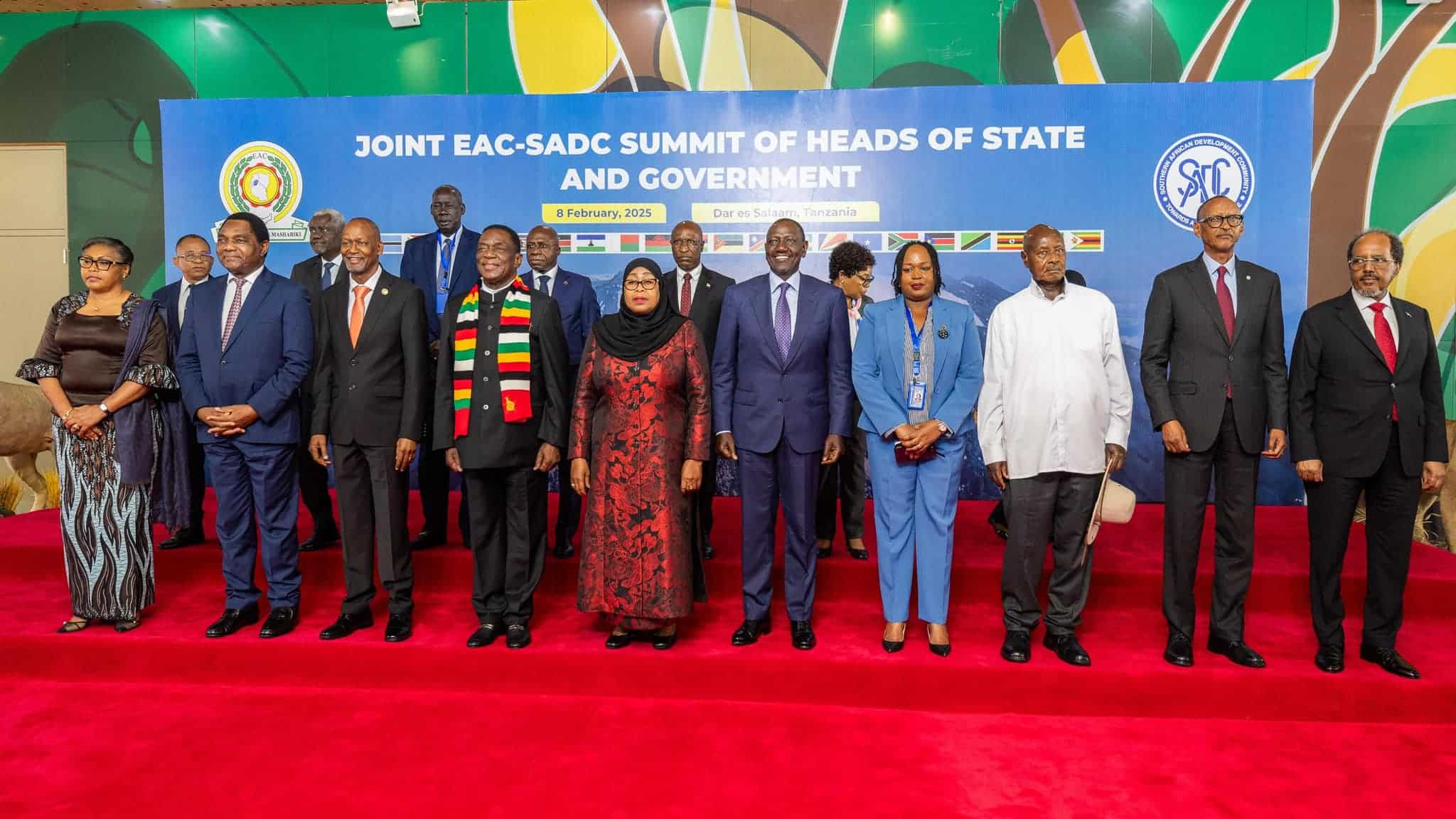
![Debate Rages Over Proposed Increase In Legal Drinking Age [Video] Nacada Raises Legal Drinking Age From 18 To 21]( https://thekenyatimescdn-ese7d3e7ghdnbfa9.z01.azurefd.net/prodimages/uploads/2025/07/beer-360x180.jpg)


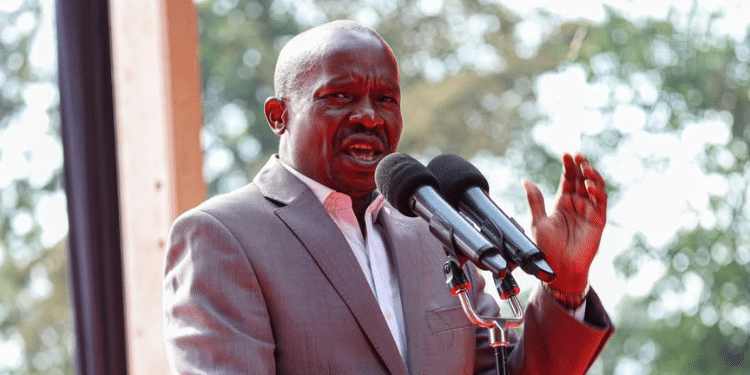
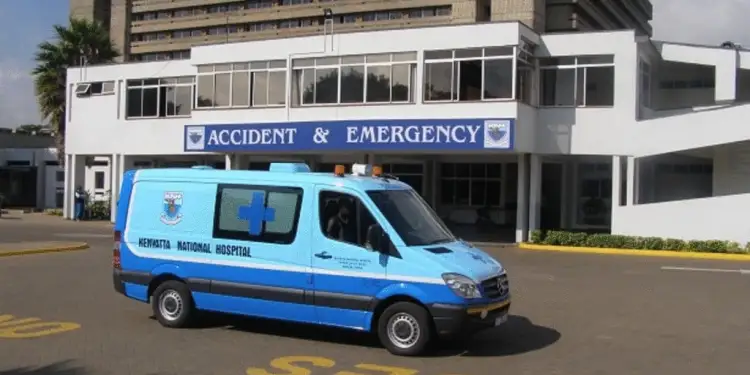
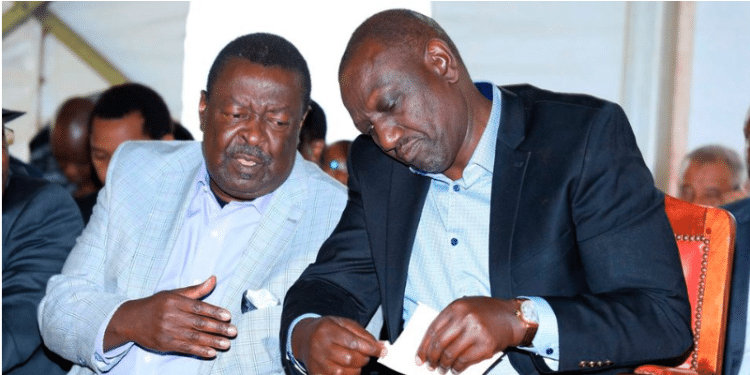
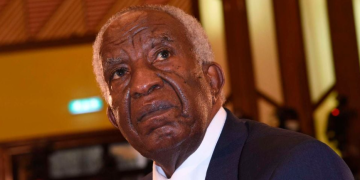







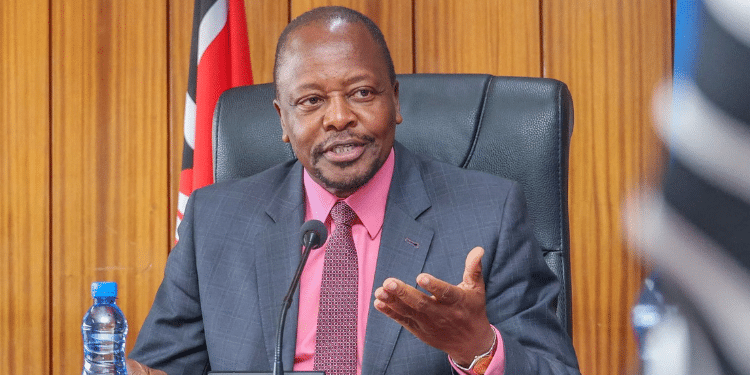



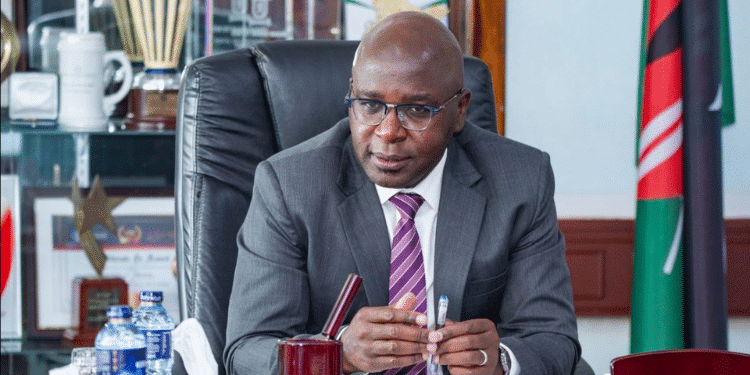










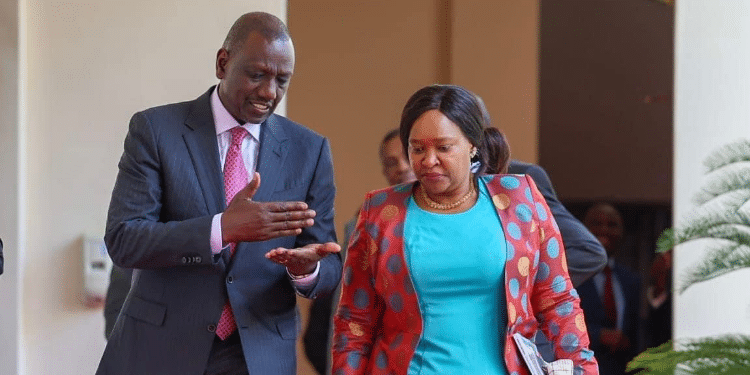








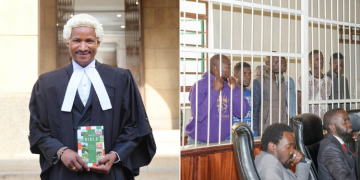





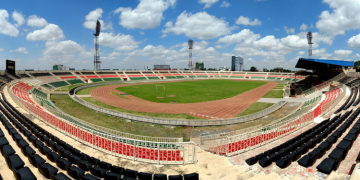
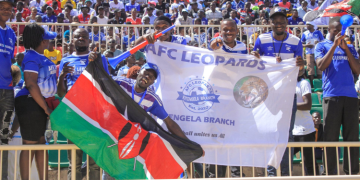

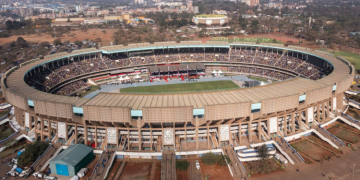
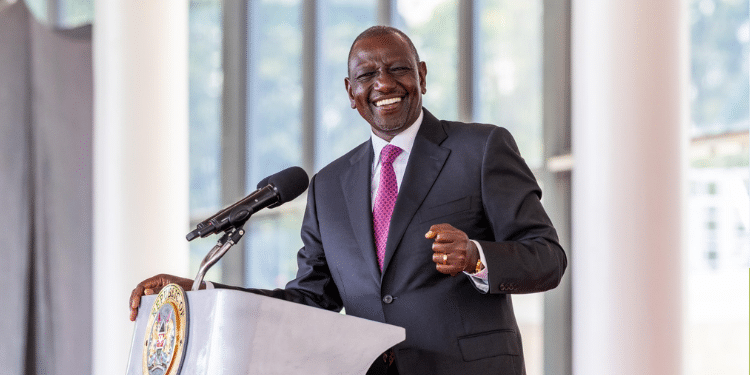










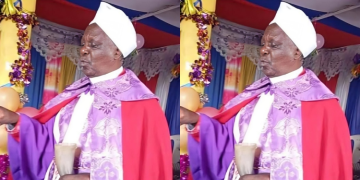






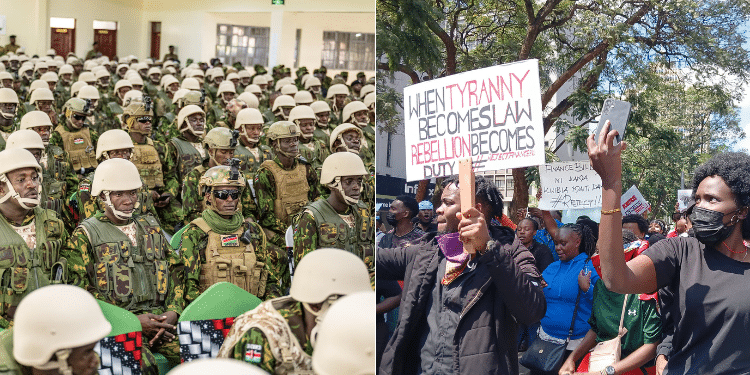

![Debate Rages Over Proposed Increase In Legal Drinking Age [Video] Nacada Raises Legal Drinking Age From 18 To 21]( https://thekenyatimescdn-ese7d3e7ghdnbfa9.z01.azurefd.net/prodimages/uploads/2025/07/beer-120x86.jpg)